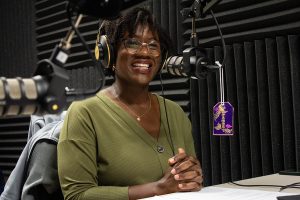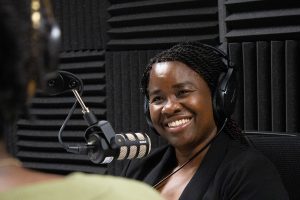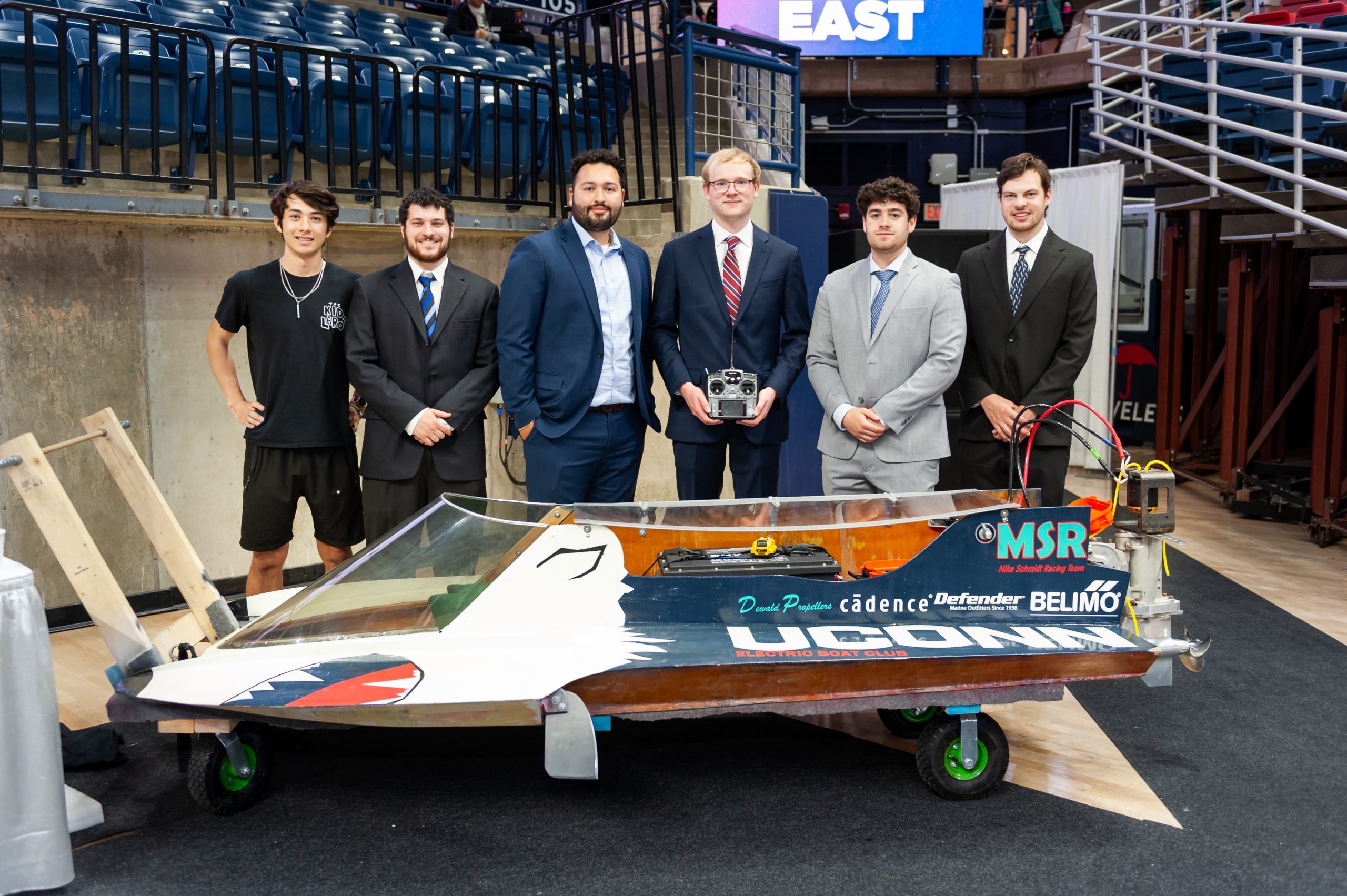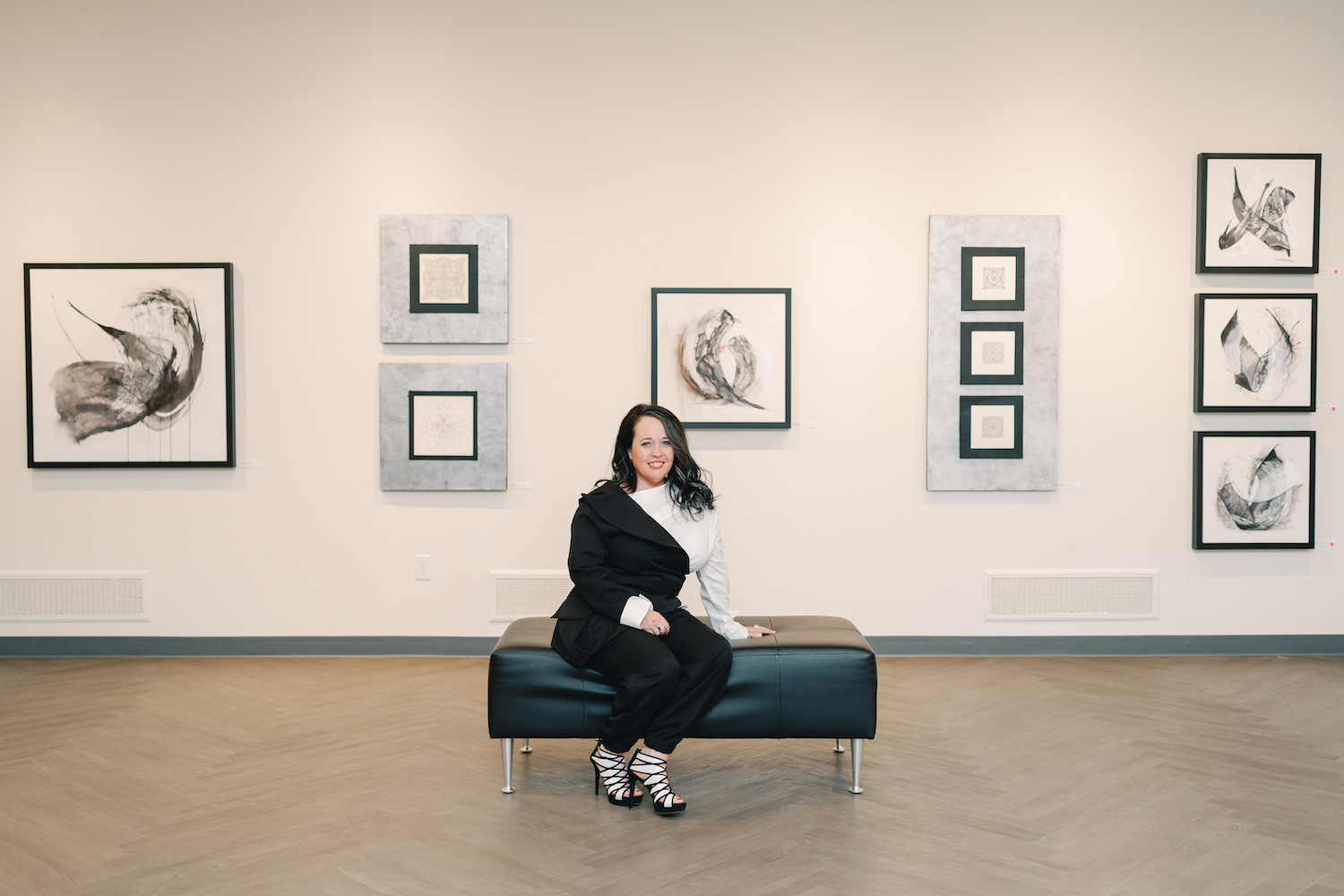Welcome to CLAS Connections, a minicast that spends a heartfelt five minutes with people from UConn’s College of Liberal Arts and Sciences, whose special connection has had a profound and lasting impact on their lives.
Today, we hear from Fiona Vernal, associate professor of history and Africana studies, and Amanda Cannada, program assistant for Africana studies. Their friendship and mutual support transcends traditional boundaries between faculty and staff. Here’s Fiona and Amanda.
Fiona: Do you remember when you first met me? What was your impression of me?
Amanda: So, you are in my office – you’re my neighbor. So, you would come down. You introduced yourself. You just always was coming down. So it was really nice to have a smiling face coming in, asking questions, and being investigative, and having suggestions, and wanting to know more about who I was. And it was nice to see another black woman on the floor. It was like, that’s always a plus.
Fiona: We kind of grow to have more and more in common. Now we both have three kids.
Amanda: Yeah, outnumbered.
Fiona: And now we’re both the loudmouths on the third floor. Yeah, people know if we’re in our office, at the end of, stand at the end of the hallway and you just count to two, listen, and do you hear laughter? And I think that, I think those are good vibes, and then eventually, it turned into a friendship. And then I think that’s how I ended up in Africana studies, because Amanda was always saying, Why aren’t you in our unit?

Amanda: Yeah, I did ask that.
Fiona: Yeah, all the time. She’s like, well, you’re using the conference room, you’re using the copier, drinking the coffee, you’re like using all the supplies, you might as well. And it made sense. And so I decided to join Africana for the amenities. Yeah. And it hadn’t occurred to me that I could actually like, you know, in terms of the administrative piece of it, it didn’t occur to me that I could actually join a unit after. But, in all seriousness, Amanda asked me that question so many times. And then I would see the faculty meetings going on and I’d say, How come I’m not with those people?
Amanda: So why do you think we connected so well?
Fiona: I can tell when you’re having a bad day or when you’ve had a bad morning. And I think you can do the same for me. And I think it’s really nice to just be in any space on this campus. Like, people are kind and nice on campus. They say hi, they say how are you. But, but then it’s like, well, what did the kids eat? Or how long did it take for you to get home? Or how wet did you get in the rain? Or did you get any sleep? It’s more than the surface level, Hey, how are you? It’s one thing for somebody to ask how your kids are doing. It’s another thing for somebody to ask how your kids are doing by name or ask, you know? Hey, like, remember that your kid’s graduating this year. And that’s what makes you feel like you belong to a space.
I think you and I have single handedly like just brought in traffic to Africana, including students who don’t have any interest in Africana, like chemistry majors, allied health majors, folks who said, well, we just like the vibes over here and we just want to come and study. There are all these resources that UConn provides for you but sometimes it takes a little bit more of a personal touch for a student to like, reach out to you with the real problems that they’re, they’re having even if they’re not having academic problems. You’ve just been this magnet in the office for the students and you’ve made the office feel like, like it doesn’t feel like an office.
Amanda: I really enjoy Africana. When I got hired, that was actually one of the things that I, I wanted to do. I wanted to be another space where students can feel safe, or they can feel open to ask questions, or to get advisement, or mentorship, or… Just be, our space isn’t that big, but it’s warm. I guess in, in my mind, I, I feel like us as two black women on campus and this is a, you know a PWI that I think is important for us to do what we can to at least like stay in the gap because this is a big place and it’s very easy to get lost.
And it’s nice to have someone say, “Hey, do you need help with something? Do you know where you’re going? Have you heard of this? This is a great opportunity. I think you’d be a great, candidate for this.” And I guess I try to think of myself now that, I’m a woman that has graduated from UConn many moons ago. To what would I want, to receive? When I was a student, when I was 18 years old, first gen, walking around.

Fiona: There’s different climates in different units around faculty staff interaction. I know I’ve certainly been in situations where it was very clear that there’s this natural hierarchy. Between faculty and staff. And that’s completely collapsed in Africana studies. And it’s not just because Amanda has an insider perspective as an alum. It’s because student success is not just about the curriculum and grades. They really trust her because even though she’s not a peer, they really feel like they can trust her to steer them in the right direction. And faculty also need the same exact thing, new faculty come in, they’re junior faculty, they’re trying to please everybody.
Amanda is an expert in the areas. That she’s an expert in. Faculty suck at bureaucracy and administration. And sometimes I don’t think that the faculty treat the staff with the respect in their areas of expertise, right? You know, your research, your book, your article, your grant, your research agenda… your compliance! You’re going to get the university in trouble if you don’t take this particular step. To really be able to have, like, it feels like a partnership, like someone I can lean on and then to say, All right, well, I’m engaged in this project. What does this mean for Africana? What does it mean for mean for our students?
Amanda: That’s like one of like the, the main thing, cause I’m always amazed at Fiona does, you know, all these things, all these grants and these exhibits and everything and I love that you let me be a part of all the research things that you do. So I, I learned what it means to be not only a historian, but like a public historian. I would say like you’re a community organizer.
The way you, you know, build people, build people around like a common cause or a common theme. And I appreciate and enjoy the partnership because that is not that’s not the way it is everywhere else. You know, there are other places where staff feel, you know, underappreciated, but because of you I feel appreciated every day.
Fiona: I don’t think I could do my job without you.


